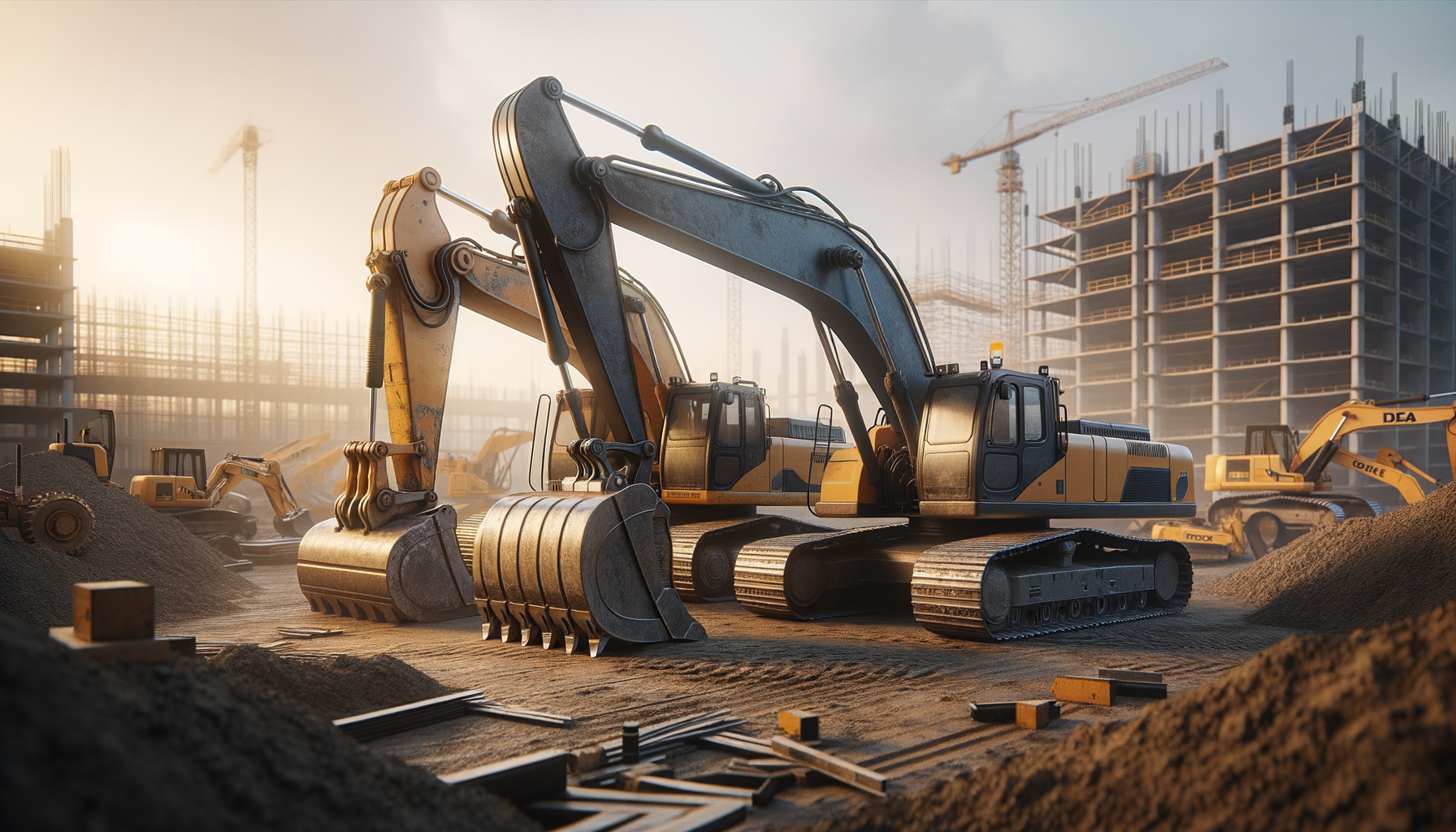Introduction to Heavy Machinery in Construction
In the world of construction, heavy machinery plays a pivotal role in completing projects efficiently and effectively. Among these machines, excavators and bulldozers are two of the most commonly used. Understanding the differences between these two pieces of equipment is crucial for anyone involved in construction, as choosing the appropriate machine can significantly impact the outcome of a project.
Excavators are known for their versatility and precision, making them suitable for a wide range of tasks. On the other hand, bulldozers are renowned for their power and ability to move large quantities of material with ease. This article aims to delve deeper into the functionalities, advantages, and best-use scenarios for each machine, providing valuable insights for construction professionals.
The Versatility of Excavators
Excavators are highly versatile machines that can be equipped with various attachments to perform different tasks. Their primary function is to dig and move earth, but they can also be used for demolition, material handling, and even forestry work. The flexibility of an excavator comes from its design, which includes a rotating platform, a powerful arm, and a bucket that can be swapped out for other tools.
One of the key advantages of excavators is their ability to operate in confined spaces. Their rotating cab allows for a 360-degree range of motion, making them ideal for projects in urban areas or sites with limited space. Additionally, the precision with which excavators can dig and move materials makes them an excellent choice for tasks that require careful handling.
In terms of fuel efficiency, excavators are generally more economical compared to bulldozers, especially when performing tasks that do not require excessive power. This efficiency, combined with their versatility, makes excavators a popular choice for many construction projects.
The Power of Bulldozers
Bulldozers are synonymous with power and durability. These machines are designed to push large quantities of soil, sand, rubble, or other materials, making them indispensable for tasks such as grading, leveling, and clearing land. The design of a bulldozer includes a broad, flat blade at the front that can be adjusted to control the depth and angle of the cut.
One of the standout features of bulldozers is their ability to operate on rough terrain. Their tracks provide excellent traction, allowing them to maneuver over uneven surfaces with ease. This capability is particularly beneficial in construction sites that require moving materials across challenging landscapes.
While bulldozers may not offer the same level of precision as excavators, their sheer power makes them ideal for projects that involve heavy-duty tasks. They are often used in the initial stages of construction to prepare the site before more detailed work begins.
Choosing Between Excavators and Bulldozers
When deciding between an excavator and a bulldozer, several factors should be considered, including the nature of the project, the type of materials involved, and the working environment. Excavators are generally preferred for projects that require precision and versatility, such as digging trenches, lifting heavy objects, or working in confined spaces.
Bulldozers, on the other hand, are the go-to choice for tasks that involve moving large volumes of material quickly and efficiently. They are particularly useful for site preparation, road construction, and any project that requires grading or leveling.
Ultimately, the decision will depend on the specific needs of the project. In some cases, both machines may be used in tandem to achieve optimal results. By understanding the strengths and limitations of each machine, construction professionals can make informed decisions that enhance project efficiency and effectiveness.
Conclusion: Making the Right Choice for Your Project
In conclusion, both excavators and bulldozers offer unique advantages that can be leveraged in various construction scenarios. Excavators provide versatility and precision, making them suitable for a wide range of tasks. Bulldozers, with their power and ability to handle tough terrain, excel in projects that require moving large amounts of material.
By carefully evaluating the requirements of a project, construction professionals can choose the most appropriate machinery, ensuring that the work is completed efficiently and effectively. Understanding the capabilities of each machine not only aids in project planning but also contributes to overall project success.
In the ever-evolving field of construction, staying informed about the tools and equipment available is crucial. Whether you’re working on a small urban development or a large-scale infrastructure project, knowing when to use an excavator or a bulldozer can make all the difference.



Leave a Reply